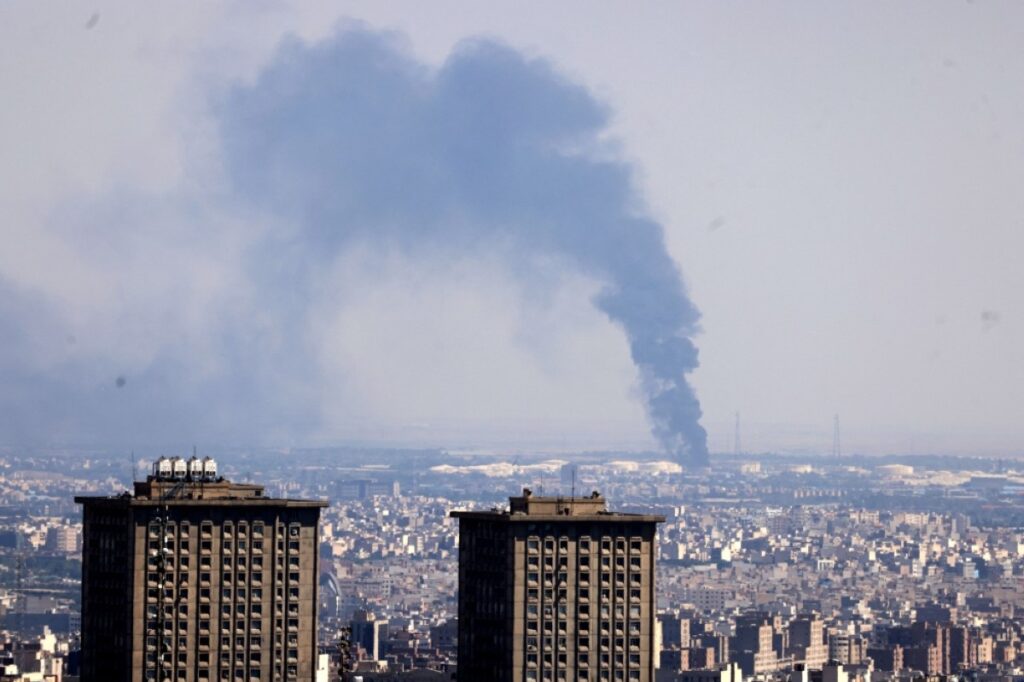Al-Budaiwi: ‘This isn’t just a regional issue — it’s a global risk’ • GCC activates ‘emergency center’
KUWAIT/RIYADH: Iran on Tuesday welcomed a statement issued by the Gulf Cooperation Council (GCC) condemning the Zionist entity’s attacks on its territory and calling for an immediate ceasefire, amid escalating hostilities between the two foes. “The emergency meeting of GCC foreign ministers shows the region’s shared understanding of the unprecedented legal violations by the (Zionist) occupation and the urgent need for immediate regional and global action to halt the imposed war on Iran,” said Iran’s foreign ministry spokesperson.
The GCC’s 48th extraordinary ministerial session was held via video conference on Monday under Kuwait’s chairmanship, with foreign ministers from all six Gulf states participating. The Zionist entity has carried out strikes across Iran for the fifth consecutive day, with Tehran returning fire with missiles. The attacks have intensified fears of a broader regional war.
Call for diplomacy
In a joint statement, the GCC condemned the Zionist entity’s actions as “a violation of Iranian sovereignty, international law, and the United Nations Charter,” and stressed the need to return to the path of diplomacy. “The ministerial council emphasized the need for an immediate ceasefire to preserve the security and stability of the region,” the statement read. “All parties must exert joint efforts for de-escalation and adopt diplomacy as an effective means of conflict resolution, while exercising the utmost restraint to spare the region and its people the perils of war.”
The council also called on the United Nations Security Council and the broader international community to fulfill their responsibilities in halting the conflict and preventing further escalation, citing the potential for “serious consequences for regional and global peace.”
As GCC intensifies its diplomatic outreach, GCC Secretary-General Jasem Al-Budaiwi held separate calls with UN Secretary-General António Guterres and EU foreign policy chief Kaja Kallas. Both leaders praised the GCC’s stabilizing role and expressed support for deeper cooperation. Guterres lauded the council’s “positive role in supporting de-escalation and regional security,” while Kallas and Al-Budaiwi “exchanged views on how to enhance regional coordination to serve long-term peace and security in the Middle East,” according to a GCC statement.
Emergency center
In a press statement, Al-Budaiwi described the current crisis as “a highly dangerous and unprecedented escalation.” “The recent (Zionist) attacks on Iranian soil and Iran’s subsequent response have heightened tensions, disrupted diplomatic channels, and opened the door to alarming scenarios that undermine political efforts,” he warned. He cautioned that any military operations involving or near nuclear facilities could have catastrophic consequences. “Targeting nuclear sites would not only violate international humanitarian law but also threaten human life, the environment, and the region’s critical infrastructure,” he said. The fallout, he added, could ripple across global energy markets, supply chains, and maritime routes. “We are deeply concerned about the potential disruption to global maritime navigation and oil infrastructure. This isn’t just a regional issue—it’s a global risk.”
In response to the escalating threat, Al-Budaiwi announced that the GCC Emergency Management Center had been activated. “This move reflects our awareness of the seriousness of the current situation. We are closely monitoring environmental and radiological indicators, and we’ve coordinated with national authorities across member states. So far, all readings remain within safe limits,” he assured. The GCC’s rapid technical response, he said, demonstrates its commitment to “maximum readiness and regional vigilance.”
The GCC also reaffirmed its support for renewed US-Iran negotiations on the nuclear file, with Oman acting as mediator. It urged the revival of diplomatic engagement to prevent the crisis from deepening. “The council called on all parties to recommit to the principles of the UN Charter, good neighborliness, and non-intervention,” the statement read. “Disputes must be resolved peacefully. Force and threats of force must be avoided.”
Al-Budaiwi concluded his remarks with a broader message of unity and resolve: “The GCC was built on values of solidarity and collective action. We reaffirm our commitment to de-escalation, to dialogue, and to preventing the region from sliding into a conflict whose consequences no one can control. We call on all actors to show restraint, avoid military action, and give diplomacy a real chance.” — Agencies

